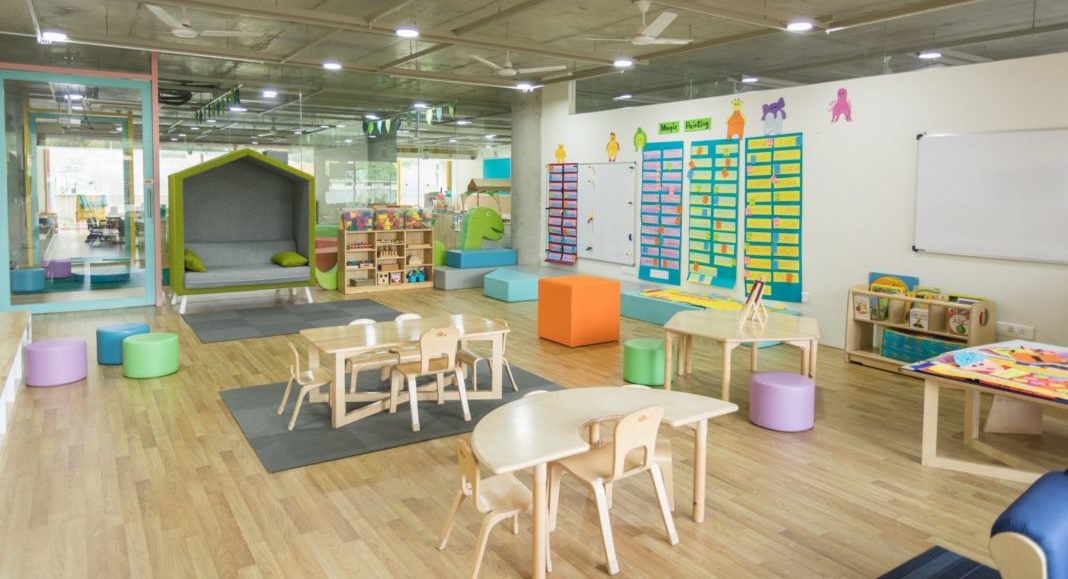When I was younger and someone mentioned that a child was “gifted” or “high achieving,” I had this vision in my mind of the perfect, angelic student. I had this assumption that the high achiever was a model student in class, had absolutely no discipline issues, was attentive, and rocked all subjects without struggle.
Then, both of my older kids made it into the high ability learner (HAL) program at their school. I discovered there are plenty of struggles that high achieving students have. It’s not perfection, at all. In fact, my own stereotype was shattered because my own kids didn’t fit my mythical image.
Even “difficult” kids are identified as high achieving.
My oldest child tested in the 75th percentile of ADHD symptoms in kindergarten. I dreaded conferences and daily reports, and spent his kindergarten year stressing so much about his behavior concerns. Through this, I didn’t realize how smart he was. His teacher missed it too, unfortunately, because she was so focused on the difficult child she was dealing with. She only noted that he was a good reader.
When we switched school districts, his new teacher had a different mindset. He wasn’t the “difficult” kid. Instead of chastising him for not sitting still in his chair, his teacher allowed him to work while standing up. He was less disruptive this way, and he flourished. He tested in the 99th percentile academically by the time he was in the first and second grades.
Along this new route, he was identified as a HAL learner. The extra challenge he received by participating in the HAL program redirected his energy and attention to excelling in the extra work. He’s in accelerated classes now that he’s in high school, and we look forward to parent teacher conferences.
There are so many kids out there that are mislabeled. Once a high achieving child receives the opportunity to thrive in a HAL program, it helps them succeed.
What can I do for my high achieving child?
Caring for your high achieving child can be a blessing and a struggle, but there are several local school districts that offer accelerated work to keep challenging them.
You are your child’s advocate. The National Association for Gifted Children recommends that you keep a portfolio that reflects your child’s skill development, awards, and extra-curricular activities. If you think your high achieving child should be receiving HAL services (and your district offers it) talk to the teacher, principal or HAL coordinator for the district.
The State of Nebraska’s Department of Education actually has regulations that cover the services provided to High Ability Learners, which is known as Rule 3. Participating school districts have criteria and procedures for identifying High Ability Learners. If a child is identified by a teacher or HAL instructor, has met certain test scores, or any other criteria, they should have the opportunity to participate. The state actually helps fund these programs, which is a huge plus for districts and kids.
If your district doesn’t offer a HAL or gifted program, see what can be done in the classroom to ensure your child is given the opportunity to learn at a level that challenges him or her.
It goes beyond the classroom.
Omaha is a great place to be, as there are even opportunities beyond the classroom to help high achievers thrive.
Regardless of what is happening at school, you can continue to offer your child additional learning opportunities that will help them foster their achievements. In fact, it’s your responsibility to do this. Strive to give them hands-on experiences as much as possible by engaging them in workshops and camps.
The University of Omaha offers excellent summer programs through their Aim for the Stars Science and Math camps. My middle schooler participated in these programs over the course of a few summers, and it helped keep him challenged and engaged over break.
DoSpace is another great resource, which offers free programs. Check out their calendar for the year-round opportunities they offer to children (and adults!) of all ages.
Our family also has a family membership to the Omaha Children’s Museum. While there are a lot of great ways to engage your high achiever there in their science and building exhibits, the benefits extend beyond Omaha. We’ve visited many science centers across the region that offer reciprocal admission. Weekend trips have given our kids hands-on experiences to help them learn, even while on vacation.
There are many resources available.
These are a few of the resources our district provided us, and we have found them helpful in our own journey:
National Association for Gifted Children
Nebraska Association for the Gifted
What tips do you have for parents to keep challenging and supporting their high achieving children?

















